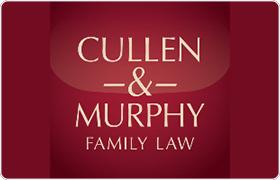Mecca Divorce & Family Law Lawyer, California
Sponsored Law Firm
-
 x
x

Click For More Info:
-
Cullen & Murphy
4094 Chestnut Street Riverside, CA 92501» view mapDivorce & Family Law Fast. Fair. Thorough.
We work hard to reduce the financial and emotional toll of family legal matters so that you can move forward.
800-734-3061
Rosemary P Bautista
Immigration, Employee Rights, Family Law, Divorce & Family Law
Status: In Good Standing *Status is reviewed annually. For latest information visit here Licensed: 14 Years
Jose Arturo Rodriguez
Visa, Adoption
Elizabeth Erin Tucker
Dispute Resolution, Estate, Divorce, Criminal
Status: In Good Standing *Status is reviewed annually. For latest information visit here Licensed: 30 Years
Abraham Neil Seidman
Trademark, Patent, Government, Child Custody
Status: In Good Standing *Status is reviewed annually. For latest information visit here Licensed: 28 Years
Mickie Elaine Reed
Family Law, Divorce & Family Law, Criminal, Personal Injury
Christopher Joseph Desalva
General Practice
Status: In Good Standing *Status is reviewed annually. For latest information visit here Licensed: 31 Years
Hilda Heredia Zamora
Wrongful Termination, Family Law, Criminal, Medical Malpractice
Status: In Good Standing *Status is reviewed annually. For latest information visit here Licensed: 13 Years
Jennifer Jo Anne Clark
Family Law
Status: In Good Standing *Status is reviewed annually. For latest information visit here Licensed: 25 Years
Wendy Ann Morck
Family Law, Divorce & Family Law
Status: In Good Standing *Status is reviewed annually. For latest information visit here Licensed: 47 Years
Fredric Raymond Morck
Divorce & Family Law
Status: In Good Standing *Status is reviewed annually. For latest information visit here Licensed: 46 Years
 Valerie Murphy Riverside, CA
Valerie Murphy Riverside, CA Practice AreasExpertise
Practice AreasExpertise